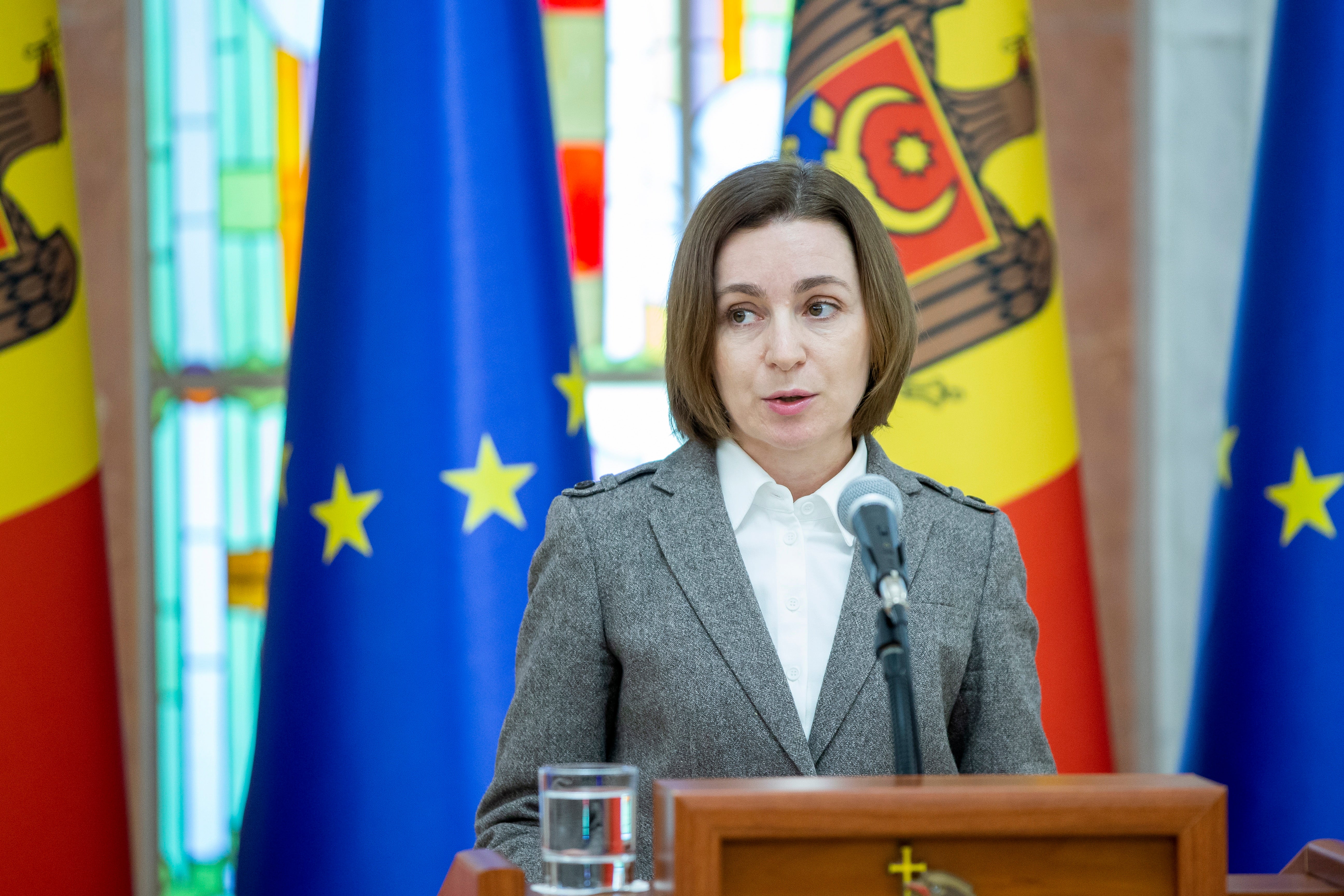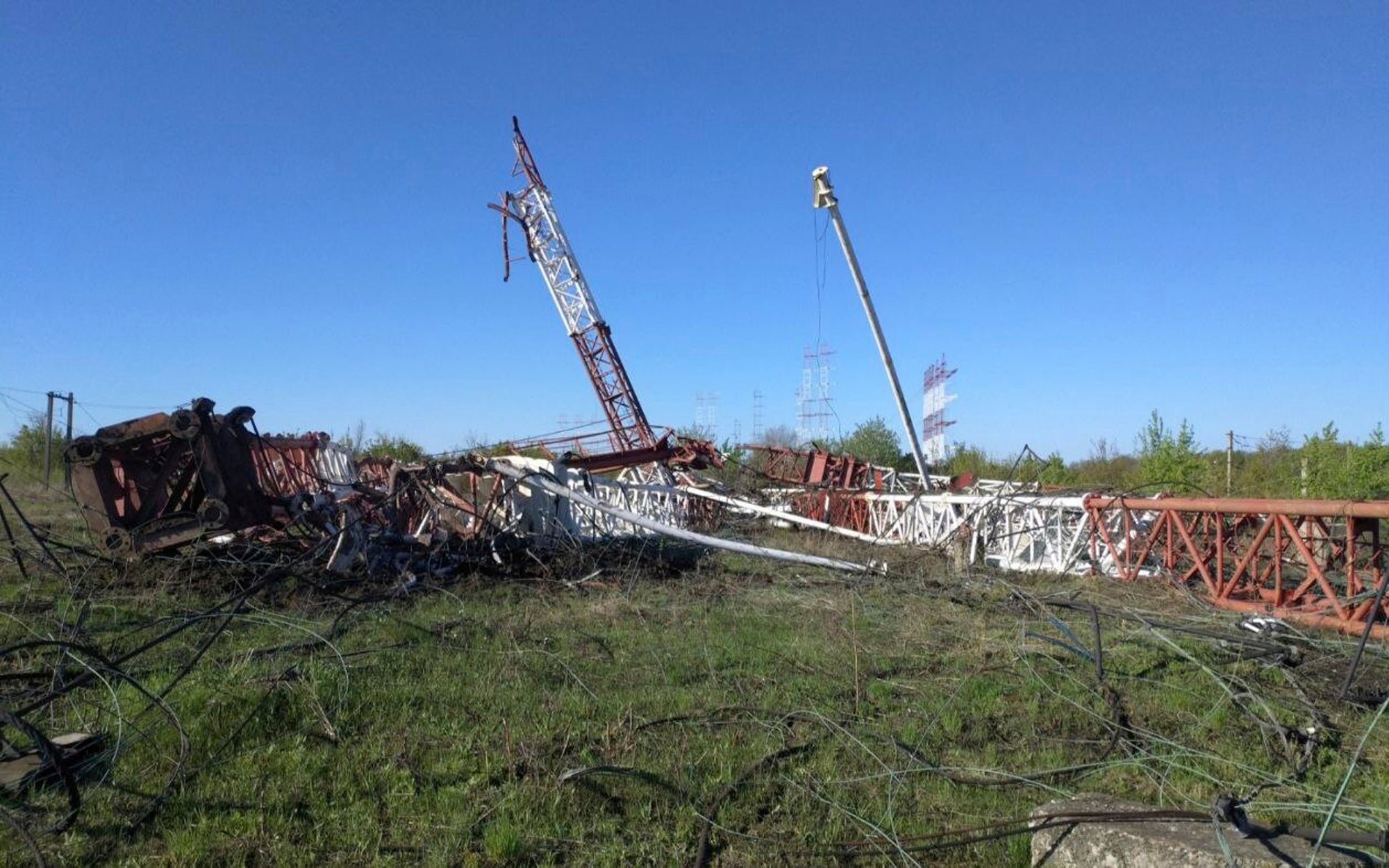Where is Transnistria? The pro-Russia breakaway region that risks being drawn into Ukraine war
The region in Moldova has suffered series of attacks as fears grow that it could be dragged into the conflict
Moldova’s pro-Russian breakaway region of Transnistria suffered a series of explosions on Tuesday in which two radio masts in the village of Maiac, Grigoriopol, were damaged, a day after the ministry of state security in the city of Tiraspol was shelled.
No one was harmed in the blasts but the latest incidents, targeting Soviet-era anntennae that carry influential Russian broadcasts, prompted Moldova to place its terror threat level on red alert following a meeting of its Security Council.
Moldova’s liberal president Maia Saudu blamed the escalation of tensions on “factions from within the Transnistrian region who are pro-war forces and interested in destabilising the situation in the region” as Russia’s war in Ukraine shows no sign of abating.
Transnistria’s interior ministry has since claimed that one of its villages was fired upon from Ukrainian territory on Tuesday night while drones were allegedly spotted overhead.
Moldova, a nation of three million situated to the southwest of Ukraine, officially applied for EU membership on 3 March, as did Ukraine and Georgia, in response to Vladimir Putin’s declaration of war. It has accepted an influx of more than 430,000 Ukrainian refugees since the fighting commenced on 24 February, more per capita than any other country.
Like Ukraine, it is not a member of Nato and has a pro-Russia breakaway region in its east seeking independence – Transnistria.
That sliver of land between the east bank of the Dniester River and Moldova’s border with Ukraine is home to 470,000 people and has been under the control of separatist authorities since 1992 when a conflict erupted between nationalists and those seeking to retain ties with Moscow in the wake of Moldova securing its freedom from the USSR.
Russia has retained a “peacekeeping” force of approximately 1,500 soldiers in Transnistria ever since, as well as a large arms depot, and its men were last put through their paces as recently as 2 February, just three weeks before Mr Putin’s “special military operation” in Ukraine began.
Transnistria is also kept on the hook economically by Russia through its provision of free natural gas, although not even Moscow recognises its claim to independence.
In fact, its hopes of statehood are only supported by three other regional breakaways with aspirations of their own: Abkhazia, Artsakh and South Ossetia.
But the absence of Nato’s protective embrace does leave Moldova vulnerable in the event that Mr Putin should demonstrate any further expansionist ambitions and fears persist that Russia could be tempted to make such a move in order to provide it with a new platform from which to attack Ukraine from the west.

At present, Russia’s military efforts remain concentrated on the Donbas, Ukraine’s eastern industrial heartland, and any potential move for Transnistria is currently considered unlikely given that it would require the conquest of Odesa first as Russia seeks to extend its land bridge across the south of the country.
But both Kremlin spokesman Dmitry Peskov and Russian deputy foreign minister Andrey Rudenko expressed their “concern” about the blasts on Tuesday, which Ukraine’s foreign ministry claims represent a “planned provocation by the Russian special services” to draw Transnistria into the current conflict.
Denis Pushilin, leader of the self-proclaimed Donetsk People’s Republic (DPR), has meanwhile told RIA Novosti that the Kremlin should “take into account what is happening in Transnistria” when planning its campaign’s next moves.

The prelude to Mr Putin’s war in Ukraine saw the Russian president move to officially recognise the DPR and the Luhansk People’s Republic (LPR) in the Donbas as independent nation states, declaring that its people were under attack from government forces and giving him a pretext to move Russian forces on to Ukrainian soil openly for the first time, having previously been satisfied to feed rebel fighters in the DPR and LPR with weapons and funding only, in the interest of plausible deniability.
Whether he might eventually be tempted to pull off a similar gambit in Moldova remains to be seen but appears all too possible.
The deputy commander of Russia’s central military district, major general Rustam Minnekayev, was quoted last week by state news agencies as saying that his invading forces ultimately aimed to take full control of southern Ukraine, giving it access to Transnistria.
And, a week into Russia’s war, a video emerged that showed Mr Putin meeting with his Belarussian opposite number Alexander Lukashenko standing next to a map that appeared to suggest that Transnistria was a potential target, although Minsk moved hurriedly to insist the prop was inaccurate.
The Independent has a proud history of campaigning for the rights of the most vulnerable, and we first ran our Refugees Welcome campaign during the war in Syria in 2015. Now, as we renew our campaign and launch this petition in the wake of the unfolding Ukrainian crisis, we are calling on the government to go further and faster to ensure help is delivered. To find out more about our Refugees Welcome campaign, click here. To sign the petition click here. If you would like to donate then please click here for our GoFundMe page.


Join our commenting forum
Join thought-provoking conversations, follow other Independent readers and see their replies
Comments